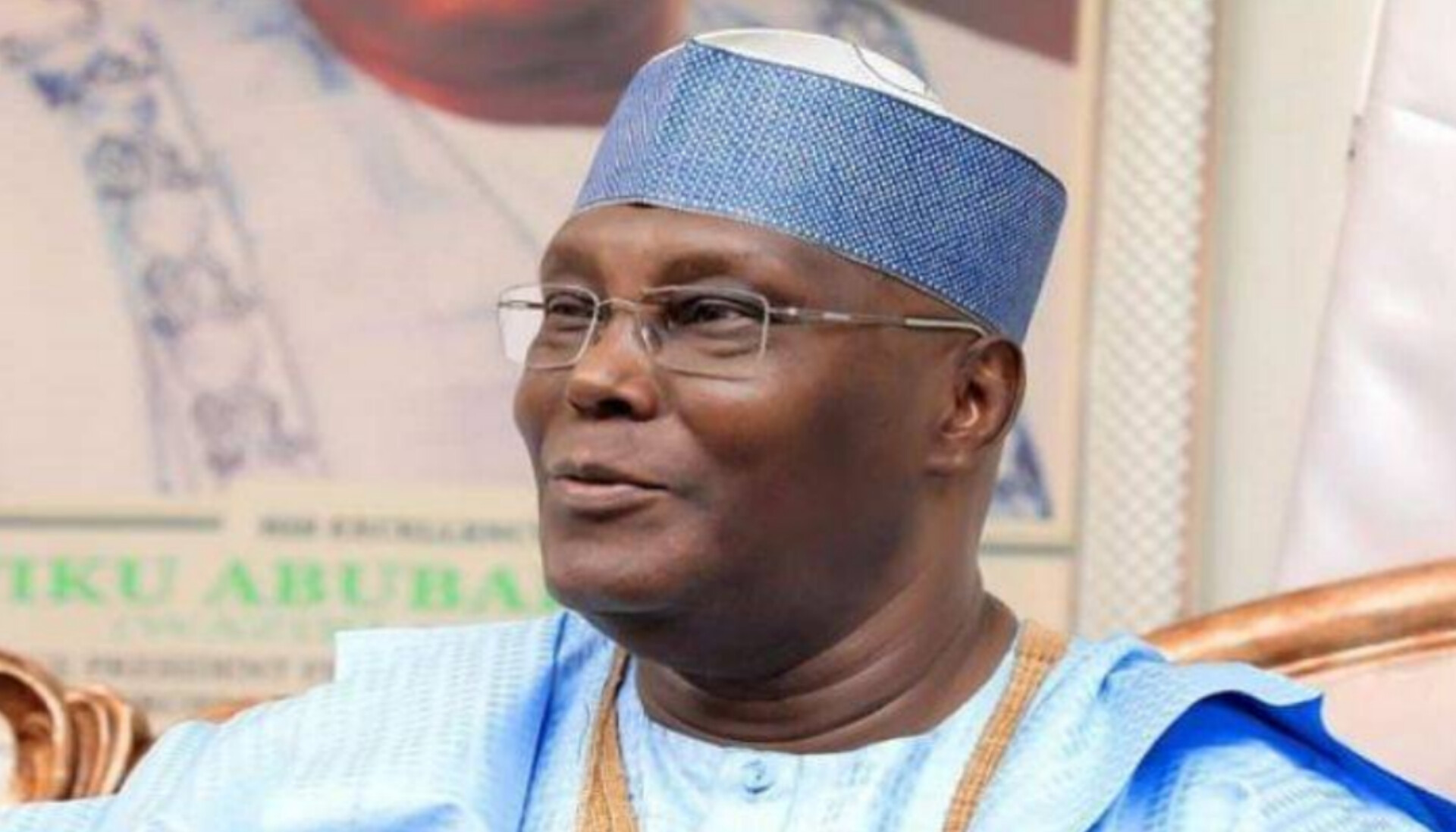By Tunde Olusunle
Permit me to commence by recommending the publication titled: Atiku: The Story of Atiku Abubakar to those with peripheral understanding of Nigeria’s charismatic former Vice President who was deputy to Olusegun Obasanjo. There’s been quantum misrepresentation underscored by plain political mischief, debauchery and chicanery in the public sphere, about the man. The book under reference was authored by Onukaba Adinoyi-Ojo, one of Nigeria’s finest journalists and writers in his time, who, very sadly and tragically departed in year 2017. Onukaba had the distinction of having authored full length, painstakingly researched and brilliantly rendered biographies on Olusegun Obasanjo, Nigeria’s former military Head of State and later, democratically elected President, and Atiku. The 338-page book on Atiku was published in 2006. It remains a key reference document on Atiku whose name has been a recurring decimal in national politics in the last four decades.
We are generally cognisant of developments in our most recent political experience. The phenomenal failure of the preceding administration of Muhammadu Buhari could only have negatively impacted the fortunes of his aspiring successor flying the flag of his party, the All Progressives Congress, (APC), at the presidential poll. A rehash of the failings and faltering of Buhari who contested twice on the springboard of the APC, evokes palpable sighs, teary emotions, even gnashing of teeth. Those years of the locusts are best shifted to the depths of distant memory. The song and slogan on the streets encapsulated mass discontent and a steely determination to excoriate that regime which typified hunger, anger, poverty, insensitivity, insecurity and gloom in totality. Nigerians were poised to speak, loud and very clear with their voter’s cards at the polls.

The APC superstructure, however, resorted to what the unforgettable Fela Anikulapo-Kuti, revered as precursor of Afrobeat, described as “government magic,” in one of his trademark political compositions. “White was turned into blue, red transformed into green,” as Fela’s song continues. Technological innovations acquired by INEC for humongous sums at the collective expense of taxpayers to facilitate seamsless electoral processes, were summarily dumped in the sewers. Returning officers of opposition parties were bludgeoned, ballot boxes grabbed, tallying sheets mutilated and voter figures presumably fiddled with. INEC in the wee hours of Wednesday March 1, 2023, announced a presidential result when votes were still being added together. Mahmood Yakubu, Chairman of INEC, proclaimed results which didn’t send Nigerians to the streets in freestyle jubilation. Conversely, Nigeria was swaddled by cemetery-type quiet and has remained so ever since.
In his continuing quest to ensure strict adherence to the rule of law in a democracy, Atiku immediately approached the highest court in the land, the Supreme Court, to take another look at the suspect and hazy pronouncements of the PEPT. Side by side with this, Atiku, a veteran and hero of many struggles, stretched the net of his fishing expedition. The question of document adulteration, forgery and scamming has recurred in instances over time since the early months of the running republic. The very first Speaker of the House of Representatives back in 1999, Salisu Buhari, was forced to resign over allegations of certificate forgery. He had tendered a fake certificate from the “University of Toronto” in his quest for a seat in the lower parliament.
The first finance minister under Buhari, Kemi Adeosun, voluntarily resigned from office in 2018. Questions were raised about the authenticity of the certificate issued to her upon the completion of the mandatory one-year National Youth Service Corps, (NYSC). A quintessential omoluabi, the well groomed and well mannered within the Yoruba context, she quietly exited and moved on. She refused to be sucked in by the razzmatazz of Nigerian-style public office, where aides fall over themselves handling all manner of chores for the “oga at the top,” a phrase which became familiar years back. Adeosun demonstrated un-Nigerian grit to have chosen the path she did, despite serving under a President, Buhari, who himself could not present his “ordinary level school certificate” usually issued by the West African Examinations Council, (WAEC).
News out of Chicago State University, (CSU) in the United States, in the inquest into the matter of alleged forgery instituted by Atiku against Tinubu, seems to validate previous presumptions. The President might just have manufactured his certificate. Following from documents submitted to INEC ahead of the presidential election, Tinubu made no entries for his primary and secondary schools, got admitted into the Chicago-based citadel for his tertiary institution and posted a blank section for his NYSC certificate. There is also the controversy about his gender during his studentship in CSU. Was he male or female? It has been virtually confirmed that Tinubu plausibly appropriated the social security number and sex of a female Nigerian student with that identity. The photograph of a lady by the name: “Adenike Abimbola Tinubu” has been trending on the internet in recent days. Tinubu’s frequently used first name, “Bola” is without a prefix or suffix. This is inconsistent with known Yoruba christening patterns. Atiku’s pakute, the Yoruba expression for “trap,” seems to have clapsed Tinubu’s ankle.
Sadly, very tragically sadly, sections of the Nigerian elite are hailing, supporting and serenading Tinubu as the “actor” or “bad guy” in an action movie. He seems to have outwitted his adversaries in the plot of the screenplay, deploying a combination of street smartness and crookedness. He is adulated as the baba’sale, the don of the backwaters, in the storyline. And because the mythical Tinubu is involved in this mire, identity theft and certificate plagiarism are admissible and proper. Some of us have indeed been repeatedly vilified by Tinubu apologists and “e-rats” on the social media. I’ve serially maintained though that he doesn’t equate the values, qualities and standards of archetypal Yoruba forerunners.
The Obafemi Awolowos, Samuel Akintolas, Abraham Adesanyas, Adeniran Ogunsanyas, Lateef Jakandes, Adekunle Ajasins, Bisi Adebanjos, Bola Iges, Reuben Fasorantis, Ayo Adebanjos, Olu Falaes, authentic Yoruba frontiersmen, were substantially transparent and respected. The contemporary Asiwaju, however, might just have been found to be something of a perjurer. His hero-worshippers and cult followers, however, want him profiled simply as a lesser cheat! Reminds of former President Goodluck Jonathan’s uncanny distinction between “stealing” and “corruption!” Tinubu’s choristers are totally blinded to the spiral effects of this national and global embarrassment. The Nigerian President should be largely overboard in many ways.
Like my brother journalist and scholar Tivlumun Nyitse said at a forum, “those who made us believe that they were champions in the pursuit of truth, justice and fair play have suddenly lost their moral compass.” They have turned a blind eye to the discovery of a career impostor who has conned his way to the marketplace as lead performer in the community orchestra. They have spontaneously become the cheerleaders of a certified trickster. They are oblivious of how grievously this development can impact the worldview of the younger generation. Those our generation is frantically attempting to wean off fatalistic subscriptions to cultism, truancy, alcoholism, drugs, and so on, now have a ready-made model. They now know they can get to the very top irrespective of the crookedness of the route they ply.
Social media reports are already proffering that the qualifications and certifications of some Nigerian professionals abroad will be re-evaluated. Previously, Nigerians across the world, especially in the United States and United Kingdom, always headlined the classifications of the most educated and most qualified professionals, amongst immigrants. As deliberate government policy, Nigeria indeed once exported excess human capacity to needy African and Caribbean countries under the “Technical Aids Corps,” (TAC), initiated by the government of former military President Ibrahim Babangida, three decades ago. We are now susceptible to hurtful taunts by cheeky immigration clerks in Johannesburg and Dubai, asking us for updates about the certificate forgery saga involving our President.
The prescription of popular revisit to the book Atiku: The Story of Atiku Abubakar, stems largely from the need to appreciate the beginnings of Atiku’s activist engagements. His triumph in forensically busting the compounded falsification, forgeries and frauds related to the President’s credentials, is product of longstanding, albeit subtle involvement in popular causes. He served his apprenticeship during his days as a student at the “School of Hygiene” (now known as the School of Health Technology), Kano, and the Institute of Administration of the Ahmadu Bello University, (ABU), Zaria, respectively. He was a student of both institutions between 1966 and 1969. In the former, Atiku’s deft handling of a brewing students’ disquiet earned him election as “President Emeritus!” He was just 20 at the time. While studying for a diploma in law in ABU, he contested for the positions of Assistant Secretary General and Deputy Speaker of the Students’ Union Parliament, concurrently. He won resoundingly. He was targeted for elimination by executioners loyal to former military Head of State, General Sani Abacha in his Kaduna home for his pro-democracy endeavours. These experiences, sharpened his dentition for his modern day enterprise.
Atiku’s battles and travails to salvage the Office of the Vice President from immolation by an overbearing President, and the political process from crass impunity by the political class, are properly documented. He pursued many of his misgivings all the way to the Supreme Court and succeeded. Osita Chidoka, a former aviation minister and Farooq Kperogi, a respected US-based Nigerian professor and public scholar have in recent treatises correctly canvassed acclamation for Atiku. His perspiration in helping Nigerians and the global community unravel the “masked man,” (not Lagbaja the masked artiste in this case), who has been our President since May 29, 2023 has paid off handsomely. Atiku invested uncommon ruggedness and peerless activism in the eventual unearthing of the fossils of Nigeria’s Number One Citizen’s cloudy, dodgy, even greasy credentials. Not too many previously knew the aluta component of the overall makeup of the typically calm and calculating Atiku.
The ball at this point, is squarely and effectively in the court of the man so openly disrobed, of Nigerians at large and the judiciary.
Tunde Olusunle, PhD, poet, journalist, scholar and author is a Member of the Nigerian Guild of Editors, (NGE)




